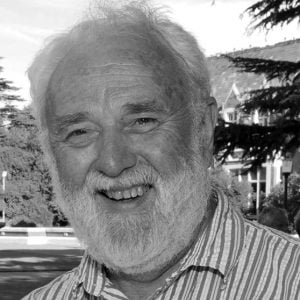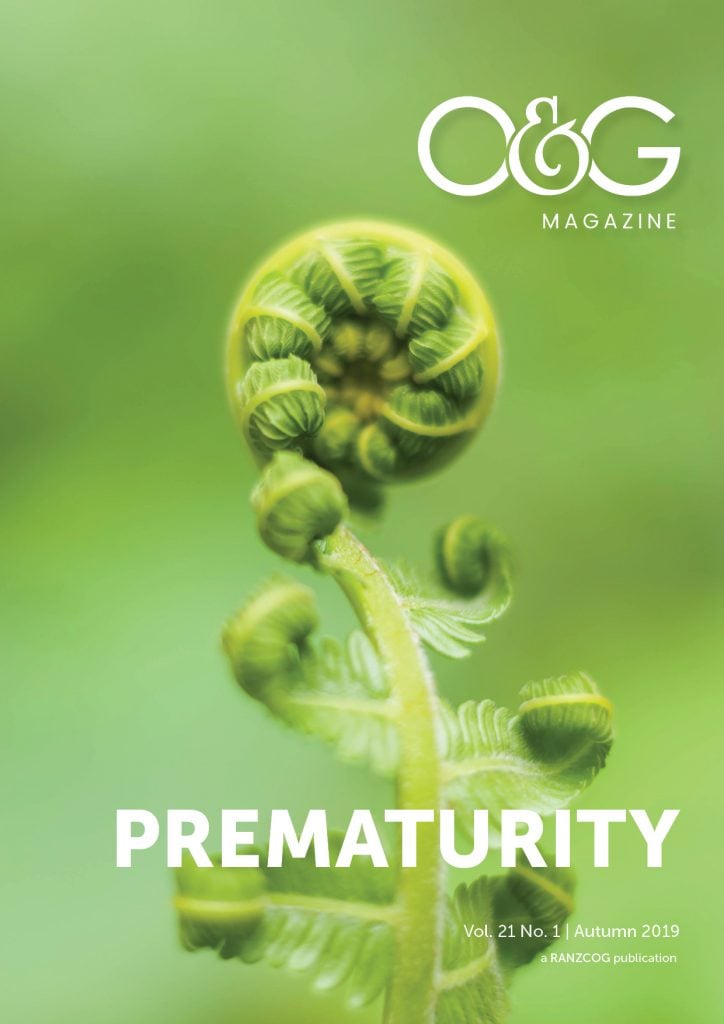Dr Geoffrey Jackel
1947–2018
Geoff Jackel was born in Rochester, Victoria in November 1947, the fourth of five children. He attended primary and secondary school in Rochester and was active in sports, especially Australian Rules and tennis, as well as being in scouting, where he excelled, becoming a Queen’s Scout.
He made the decision as early as 12 years old to do medicine and became the first member of his family to go to university. He attended Monash University Medical School and financed, by picking tomatoes, his accommodation and the cost of his much-loved car (Austin A30), which (it’s reported) he drove ‘like a maniac’ around the streets of Melbourne.
Following graduation in 1970, Geoff did two years of residency at Princess Alexandra Hospital in Brisbane and, in 1973, at Toowoomba General Hospital, where he took part in a program of rotating specialities in preparation for general practice.
After a term of obstetrics and gynaecology, he was inspired to change career direction and applied for a training position at the Royal Newcastle Hospital (RNH). His training supervisor at RNH, Dr Julian Ward, reported to Geoff that he had won the position on the toss of a coin between the two best candidates.
To further his clinical experience, he moved with his family to St Mary’s Hospital, Portsmouth, UK from 1976–1977, where he gained MRCOG and returned to RNH as senior registrar the following year.
At completion of his training, for a short period, he joined the O&G practice of Drs Steele Fitchett and Leon Clark in Newcastle.
In 1982, Geoff moved with his wife, Virginia, and family to Dubbo to join in practice with Chris Halloway, with whom he’d previously worked at RNH. They were subsequently joined in 1984 by John Tooth and in 1990 by Tony Geraghty; both also trained at RNH. He worked in this practice before moving to a staff specialist position at Dubbo Base Hospital in 2007.
Geoff gave tireless service to the women and families of Dubbo and the region for over a quarter of a century. Despite long hours, he invariably remained patient and kind, prepared to listen to the concerns of those he was caring for, no matter the time of day or the disruption to his own schedule.
Geoff contributed to the establishment of DBH maternity service as a specialist training site, with ITP trainees rotation from Westmead Hospital, Sydney from 1997. He was also involved in Provincial Fellows activities, being the principal organiser of the Provincial Fellows Annual Scientific Meeting in Dubbo in 2000, as well as participating in Provincial Fellows CPD activities such as practice visits, perinatal audits and laparoscopic audits. He was also an examiner for the DRANZCOG.
Geoff was an enthusiastic teacher of students, midwives and trainees and was prepared to offer opportunities in procedural O&G to others without regard to the expense of his own time.
He had significant community involvement, especially through Dubbo schools, where all his children were educated, and he served a term as Chair of the Parents & Citizens Association at Dubbo High School. One of his sons, Bryce, who sadly died in 2017, was school captain there in the mid-1990s.
Geoff was obviously a great source of inspiration to his children, who only ever referred to him as ‘Geoff.’ Three of his sons graduated in medicine from Newcastle Medical School and his daughter has become a highly credentialed nurse. This is despite the belief, often expressed by Geoff, that none of his children would follow in his footsteps ‘because they could see how hard I worked’.
Throughout his time in practice, he was supported by Virginia who, as well as working part-time in the practice, filled in the gaps created by Geoff’s frequent absences. Together they created a highly effective team, bringing up their large family of five in a stimulating and loving environment.
Geoff was also an inspiration to his extended family, with his siblings and their families looking to him for support, advice and affection, which he willingly gave.
Geoff had many interests outside of work, including gardening. He had a large backyard vegetable patch alongside the chook run at the family home where he applied his sound agricultural knowledge developed during his childhood in rural Victoria.
He was a keen fisherman and escaped to the western rivers with his family whenever he was given the opportunity. He was a more than able tennis player and kept up his skills in the family backyard court.
At Dubbo golf club, he became a regular Wednesday competition player and, at the height of his powers, managed to get his handicap down to the mid-teens. However, he was ready to admit that he could play ‘some shocking golf’.
Geoff will be remembered by those who knew him as someone of great modesty and humility. Despite his pre-eminence in the community, he was never given to grandiosity. To his friends and colleagues, he was a guide, mentor and font of wisdom. He was blessed with a sense of humour and was able to laugh at himself. He would self-deprecatingly refer to himself as ‘one of the little fellas’.
Geoff died on 30 May 2018, among his family after a long illness, in Newcastle, where he had moved following retirement from practice in 2010.
By those who knew and loved him, he will be missed.
Dr Tony Geraghty
FRANZCOG
Prof Roger Gabb
1942–2018
Roger Gabb, our inaugural Director of Education at RACOG, was a man passionate about education, training, accreditation, quality assurance and continuing professional development.
At university, he initially obtained a veterinary science degree. This was followed by a PhD in reproductive physiology, a Master of Education and a Master of Public Health. After initial veterinary work, his love of education took him to an academic position as senior lecturer in animal physiology at Lincoln college, University of Canterbury, New Zealand. He became director of their educational services unit.
Some senior Fellows of our College had recognised the need for an educational expert at RACOG, and this led to the appointment of Roger Gabb in 1986, as the foundation Director of Education of RACOG.
As he told us at a meeting of the board of examiners of the College in 1992, he spent his initial months at RACOG observing our systems. He found that there was little formal documentation of training and accreditation; no educational curriculum for our trainees; no standardisation or means of validation of our examinations for MRACOG; and no requirement for Fellows to have any record of CPD activities after completion of their training.
Roger firstly organised, educated and trained the board of examiners. We learned how to standardise and validate the exams we conducted. Most importantly, we learned how to assess our own performances as examiners. He showed us the format of structured oral examinations and gave us the framework for the development of standardised cases. This change meant that rather than each MRACOG candidate seeing different and random clinical patients, as had been happening for all previous years, each candidate was examined on the same eight cases. What is now normal practice was a revolution in exam practice in 1992.

Prof Roger Gabb
He led the College in curriculum development and in formalising documentation of the training and assessment of our trainees. He created the framework to make RACOG the first specialist medical college in Australia to mandate a formal CPD program for all Fellows in order to maintain their specialist accreditation.
He published his work and presented it at O&G and educational conferences around the world. His achievements were noted, acknowledged and copied by the Royal College of Obstetricians and Gynaecologists London, and many other international colleges and societies. He was appointed educational advisor to both the Asian Federation of Obstetrics and Gynaecology (AOFOG) and the International Federation of Gynaecology and Obstetrics (FIGO). He was a leader in developing the Pacific Society for Reproductive Health to facilitate all aspects of education for O&Gs and midwives from that region. By the mid 1990s, Roger had taken RACOG to a position as a recognised world leader in O&G education and assessment.
The Singapore College of O&G was so impressed that they asked RACOG to conduct our examinations annually for their candidates in Singapore. It became a privilege and pleasure for each group of examiners to travel with Roger to examine. It also provided Australian trainees with an alternate venue to sit their examinations.
Roger was always personable, compassionate and kind. He was an intellectual giant, while also extremely generous in sharing his knowledge and expertise. He loved travelling, good company, good food (particularly international cuisines which he enjoyed all around Asia and Oceania) art and music. He delighted in the Fellowship and friendship of very many O&Gs and academics around the world.
He left the College to become Professor and Director, Centre for Professional Development, Victoria University, Melbourne. It was a great loss to our College, but a great gain for them.
Our College motto could well describe Roger’s contribution to RACOG. He took our College, in educational matters, ab umbris ad lumina vitae (from shadows to the light of life). In recognition of his service and achievements, Roger was made Fellow ad eundem of our College in 1999. He left a profound influence on all who worked with him and will be remembered with great affection.
Vale Roger!
Dr John Campbell
FRANZCOG






Leave a Reply